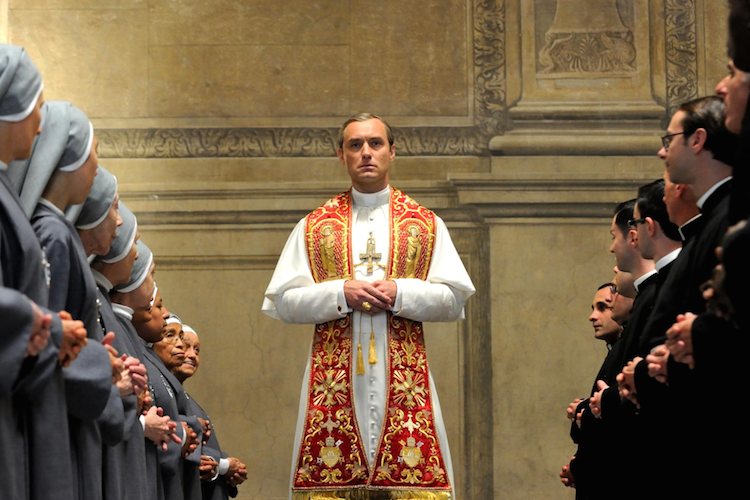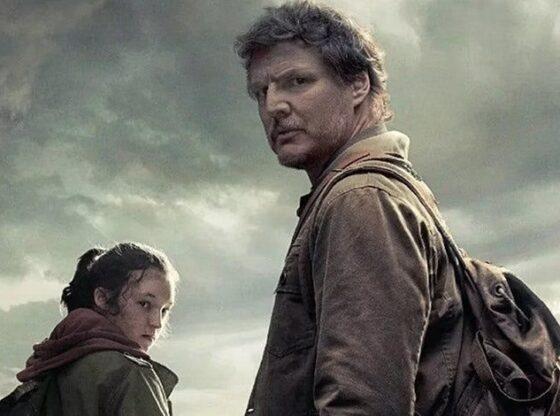In HBO’s new miniseries “The Young Pope,” the show’s disconcerting mood is immediate. In the opening scene, Lenny Belardo, Pope Pius XIII, played by Jude Law (“The Talented Mr. Ripley”) crawls out, clad in his holy garb, from beneath a mountain of wriggling infants. This bewildering image is a compelling first taste of the symbolism and rich imagery laced within the drama like the gold embroidery of His Holiness’s red stole.
Pope Pius XIII is a fictitious figure created by acclaimed Italian screenwriter/director Paolo Sorrentino (“The Great Beauty”). The Pope is a man of great controversy and contrast. He is both the youngest Pope and the first American Pope in history. These traits are affirmed by his taste for Cherry Coke Zero and his priority to improve the Vatican’s radio signal. Despite his millennial palate, the young Pope’s values are far from progressive. He enters his post as the head of the Catholic Church with the mindset of bringing about starkly conservative changes. He is a Pope in favor of retrogression and little tolerance.
The religion of Catholicism is dripping with history, gothic imagery and romantic genuflections. Within cathedral walls there are sins confessed, rosaries counted and crucifixes worn. However, as ardent its rituals, Catholicism has, for thousands of years, been suspect to corruption, idolatry and mislead religious figures. The young Pope’s disposition leads one to believe that he will be placed within the latter category, yet he speaks with great confidence that he has been chosen by God to fulfill this duty. He is also compassionate towards the poor and the weak and shows great loyalty towards the nun, Sister Mary, played by Diane Keaton (“Annie Hall”) who took him into her orphanage when he was a boy. This Pope is not so easily sorted.
In light of last week’s presidential inauguration, some may think it a bit too soon for a drama that depicts a political leader who is wholly conceited, firmly conservative and not at all concerned with public opinion. Along with their analogous personas, there are many parallels that can be observed between Pope Pius XIII and President Trump’s speaking skills.
This month, Trump released one of his frequent greetings to his “enemies” in his tweet, “Happy New Year to all, including to my many enemies and those who have fought me and lost so badly they just don’t know what to do. Love.” The young Pope speaks with a comparable degree of humility while delivering his first homily before an anticipatory crowd of thousands. He goes off on a spontaneous rant that veers from the sage advice of his colleagues and elders. He becomes agitated with the crowd and closes with “I don’t know if you deserve me.”
The timing of the show’s release cannot be merely coincidental, for the similarities of disposition are too brazen. However, instead of leading the free world, this narcissist is the head of a massive belief system which, for years millennia, has maintained at the least a facade of morality and kindness.
After only two episodes, it is clear that the controversial series has a great many surprises in store as the Pope’s paradoxical character continues to develop.
Jude Law has established high expectations as to the level of sophistication in his performance. He is both fearsome and filial as he speaks of his divine duties with a cloud of grey smoke billowing from his lips. In the premiere episode, the topic arises as to whether or not the Holy Spirit directly chooses the Pope. A cardinal responds, “…the Holy Spirit is not stupid. But he is ironic and cunning.” The same could be said for His Holiness.











